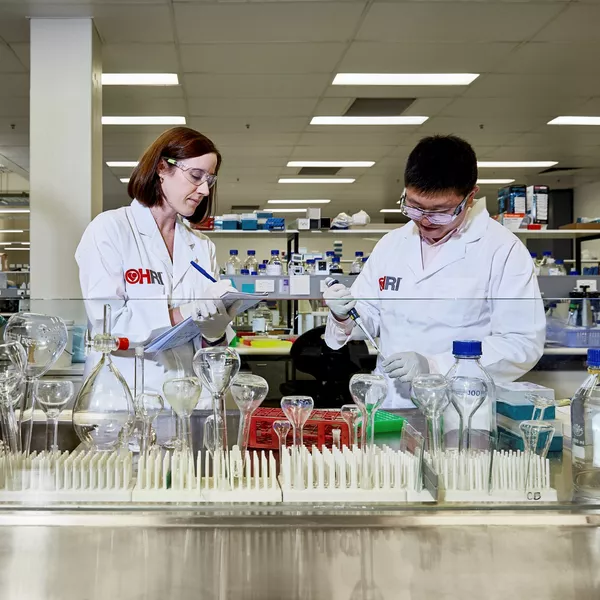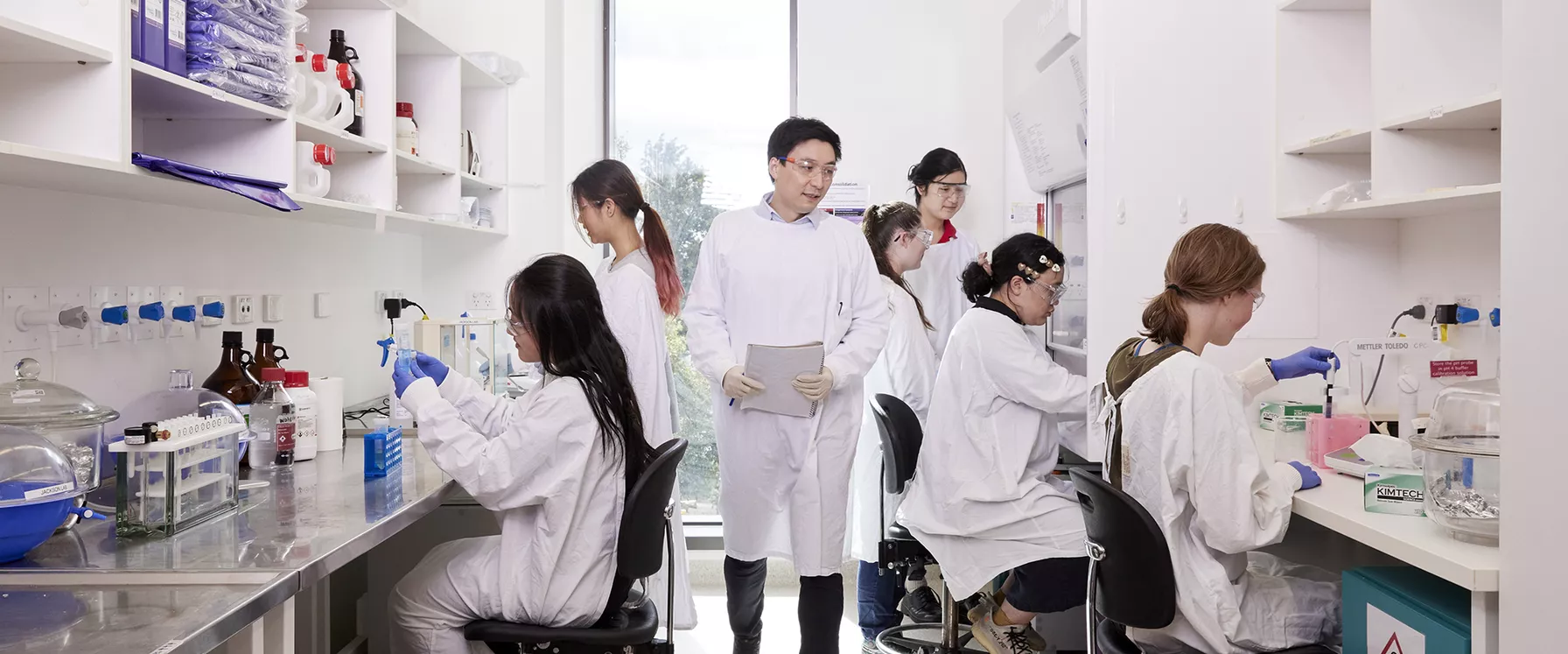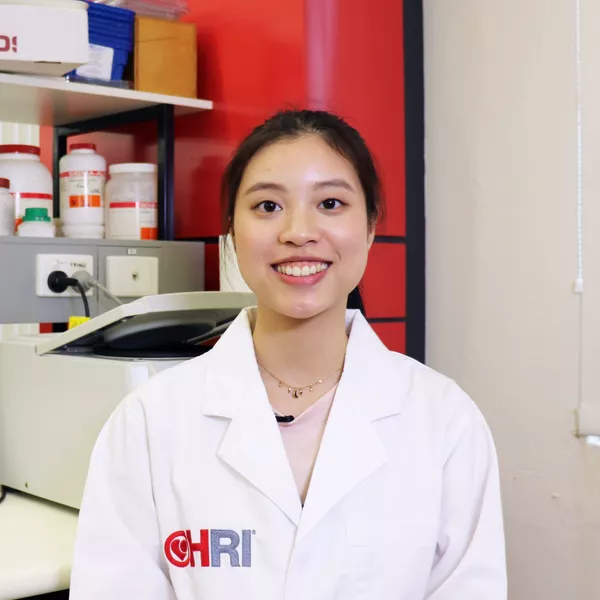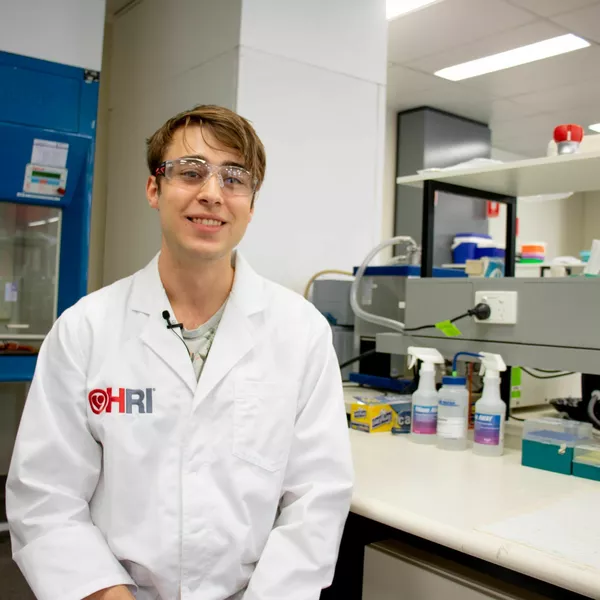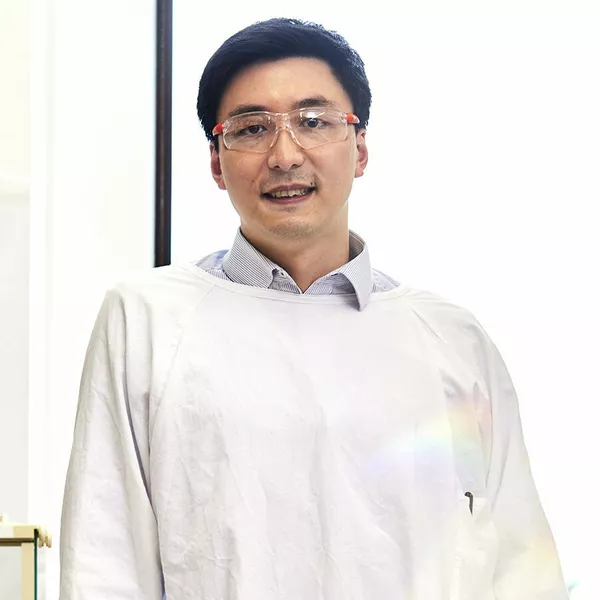
Our objective
Our mission is to better understand the therapeutic mechanisms of cardiovascular-protective natural supplements in platelets and the heart, and use this knowledge to develop next-generation precision medicine for the prevention and treatment of life-threatening thrombosis and ischaemic stroke.
Despite the global burden of cardiovascular disease, the development of new cardiovascular drugs has stalled for over two decades. The primary reason is intolerance to drug-related side effects. Recently, there has been considerable interest in the development of natural supplements for cardiovascular-protective therapeutics, due to their inherent safety profiles and the clinical evidence for ameliorating chemotherapy-induced cardiovascular complications. However, it remains a huge challenge to understand the cardiovascular-protective mechanisms at the molecular level, which impedes pharmacological optimisation of these bioactive agents for therapeutic use. Therefore, we aim to apply cutting-edge chemoproteomics platforms to understand the intricate signalling interplay in cardiomyocytes in response to different natural products and to construct a comprehensive chemotype database for cardiovascular-protective drug discovery.
Our research aims to determine the protective mechanisms underlying heart-healthy diets and herbs, and apply this knowledge to design and develop safer and more effective cardiovascular therapeutics.
To this end, we focus on the development of new proteomic platforms to enable genome-wide understanding of how natural supplements and drugs perform in the context of cardiovascular complications, and on constructing a comprehensive chemical-proteomics database to reveal the therapeutic impacts on thrombosis at the cellular and molecular level.
We also focus on adopting new drug discovery technologies – PROTAC and ABPP that have led to a tremendous achievement in anti-cancer drug discovery – to accelerate the development of precision medicine to tackle thrombosis and ischaemic stroke. In particular, leukocytes, ie, neutrophil and macrophage, have been strongly implicated in the pathogenesis of thrombosis. We aim to develop new PROTAC molecules to tackle the challenge of severe thromboinflammation that leads to the poor prognosis of cardiovascular disease and COVID-19.
Our impact
Thrombotic complication is the leading cause of mortality and accounts for one in four deaths worldwide. Despite intense investigation over the past decades, the discovery of novel cardiovascular drugs has remained disappointingly low. Novel antithrombotic drugs entering clinical testing have stalled due to the large attrition in investment and increasing demand in risk assessment. However, the existing antithrombotic drugs such as aspirin and clopidogrel are ineffective, with less than 15 per cent of diabetic patients taking these medicines avoiding a fatal thrombotic event. This situation is likely to worsen in the near future due to the rapidly growing incidence of obesity and diabetes.
The chemical biology research approach adopted by our group is designed to identify effective and durable antithrombotic therapy inspired by natural supplements, and to repurpose anti-cancer and anti-inflammatory drugs for thrombotic conditions.
Our research has identified natural compounds in broccoli, khella, and licorice that can make thrombolytic therapy for strokes three times more effective without increasing the risk of brain bleeding. Remarkably, these compounds also help protect brain cells from stroke damage, showing benefits similar to an advanced neuroprotective drug currently in phase III clinical trials (Tat-NR2B9C). These discoveries have led to invitations to present group's work at prestigious institutions including Novo Nordisk (Denmark), EPFL (Switzerland), the National Research Council of Italy, and the Chinese International Peptide Symposium. These engagements have helped drive the bench-to-bedside translation of my research findings.
Our next focus is to actively explore commercialization pathways for our research, with the goal of delivering safer and more effective treatments for thrombotic diseases using naturally occurring compounds.
Selected grants
2019 USYD Cardiovascular Initiative Catalyst Award – Project: A PROTAC-based bioengineering platform for novel anti-platelet drug discovery
2020 USYD Cardiovascular Initiative Catalyst Award – Project: Towards the development of safer and more effective antithrombotics for the treatment of stroke
2020 Therapeutic Innovation Australia: Pipeline Accelerator COVID-19 Rapid Response Funding – Project: Towards the development of more effective and safer high-affinity ACE2 variants for the treatment of COVID-19
2023 Selby Research Award – Project: Natural modifications of proteins and how they impact protein function and cellular decision-making processes
Current Research Projects
PROTACs for Cardiovascular Disease
Deciphering Reactive Molecule Liberation in Vegetable Cooking and Their Impact on Human Blood Cells
Photo-Responsive Thrombin Inhibitors Enable Precise Control of Localised Antithrombotic Therapy
Killing Two Birds with One Stone: Synthesis and Evaluation of Blood-Feeding Animal Venoms for the Treatment of Breast Cancer and Tumor-Induced Thrombosis
The team
Projects
Exploring the anti-stroke potential of our everyday diets
Photo-responsive thrombin inhibitors enable precise control of localised antithrombotic therapy
Chemical knock-out of proteins in primary leukocytes using PROTAC-based modulators
Towards the development of more effective and safer high-affinity ACE2 variants for the treatment of COVID19
Chemical synthesis and phenotypic validation of precision proteolysis targeted chimeras (PROTACs) for cancer and cardiovascular disease
Understanding heart-healthy diets at the molecular level
News
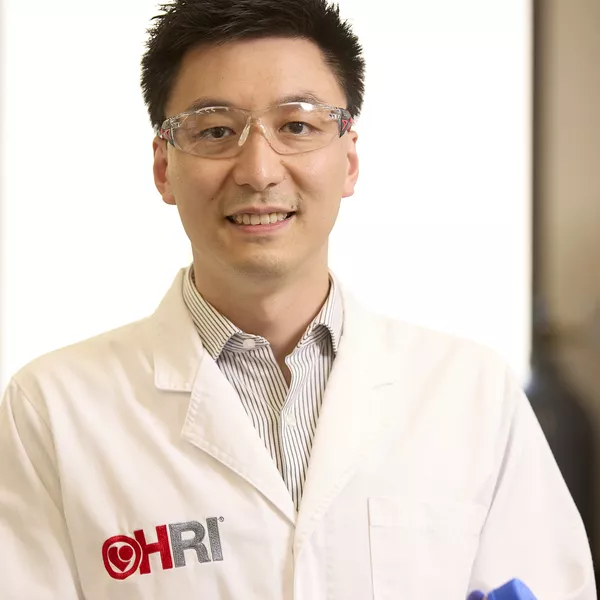
HRI's Dr Xuyu Liu awarded funding for research into new stroke treatments
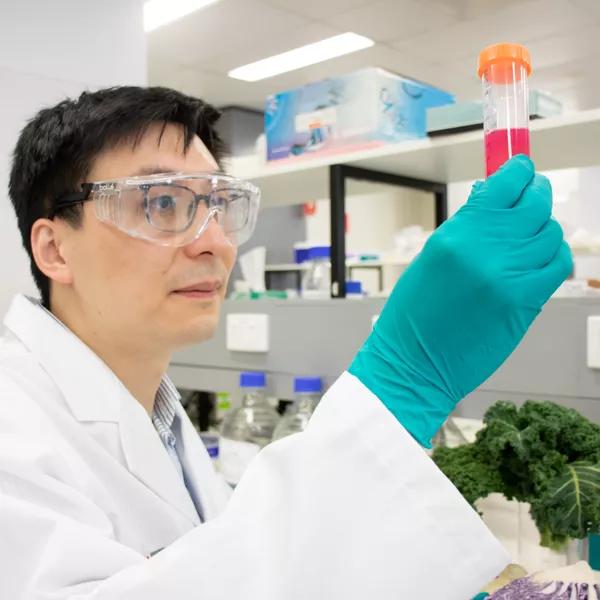
Broccoli: Heart-healthy veggie that could prevent and treat stroke
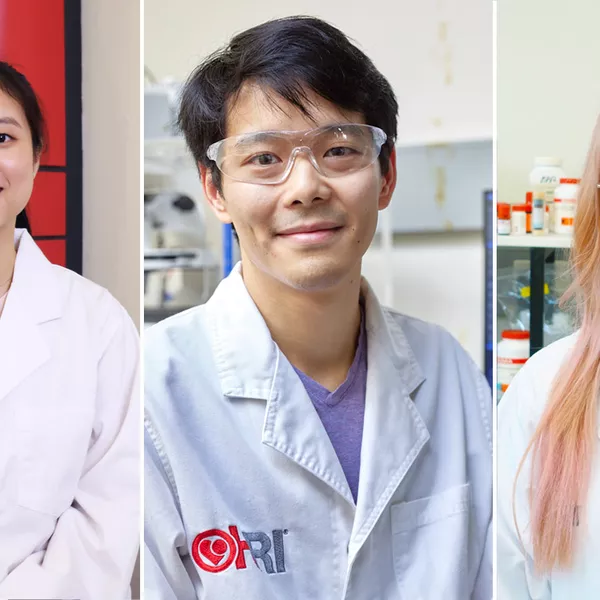
Promising young HRI researchers celebrate success
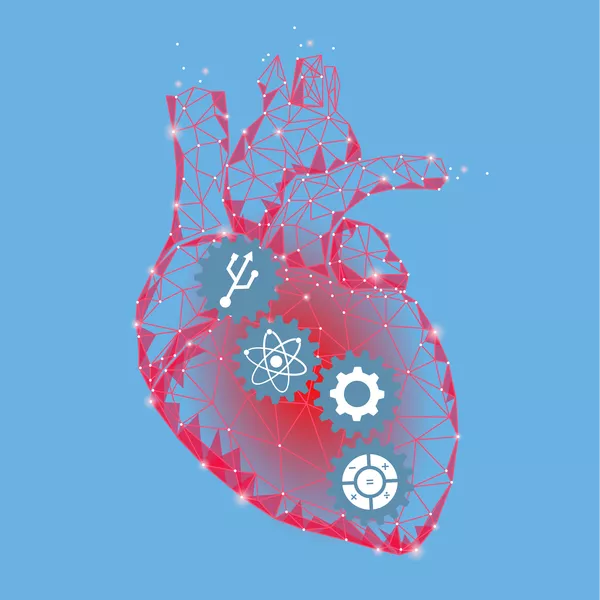
Leading researchers gather at the 2023 Sydney Cardiovascular Symposium

HRI awarded $5 million NHMRC Synergy grant for new stroke treatment

Dr Xuyu Liu receives Selby Research Award
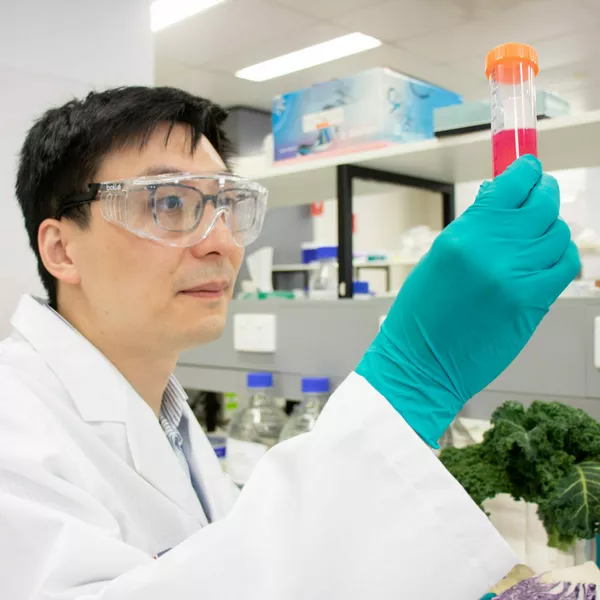
DECRA and Vanguard Grant awarded to Dr Xuyu Liu
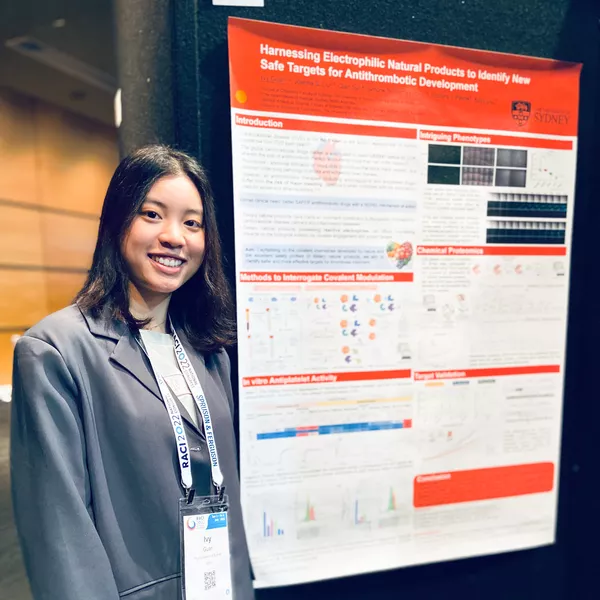
HRI wins RACI Women in Chemistry Honourable Prize
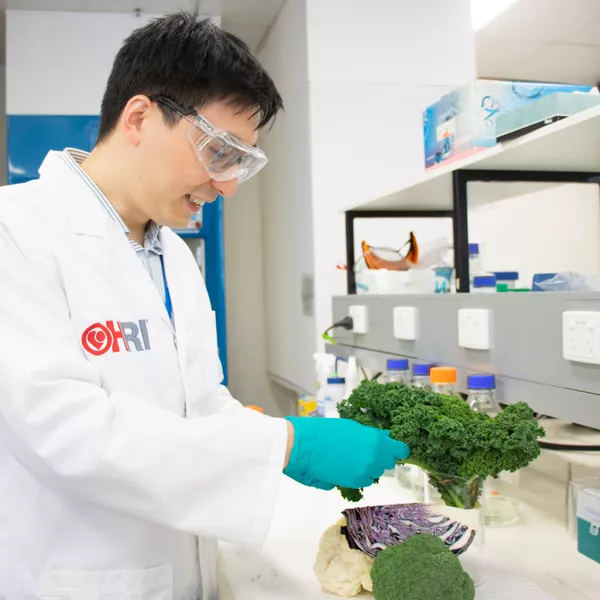
HRI scientists working to prove how some of the most unpopular vegetables could reverse stroke
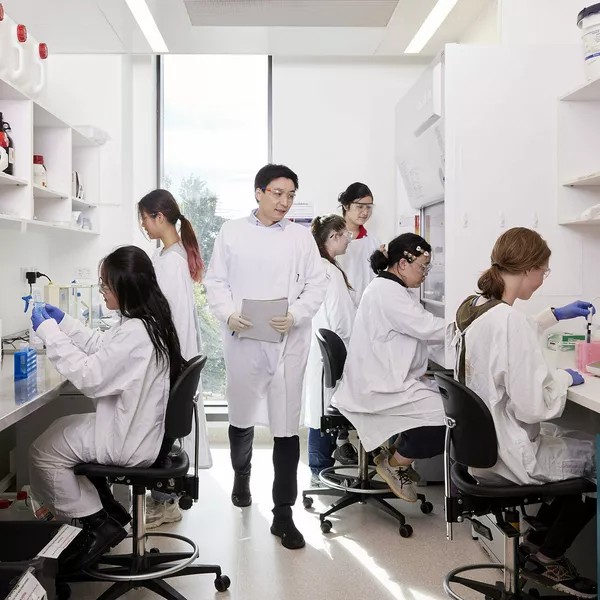
Inspiration from natural products in heart-healthy diets used to fight cardiovascular disease
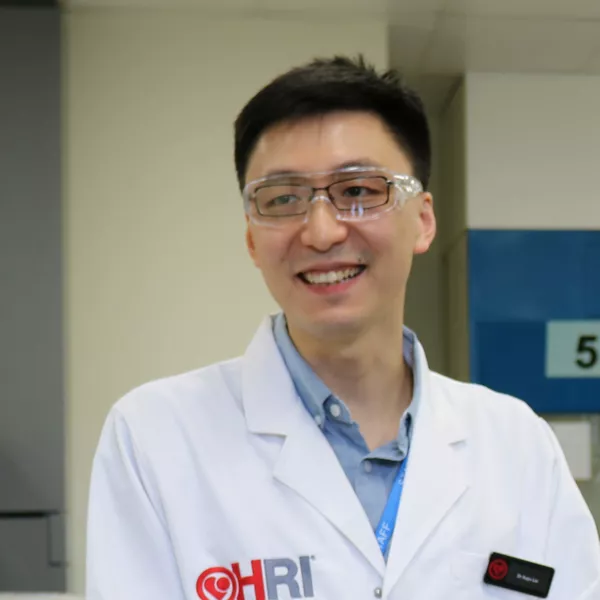
Dr Xuyu Liu awarded cardiovascular drug discovery grant
